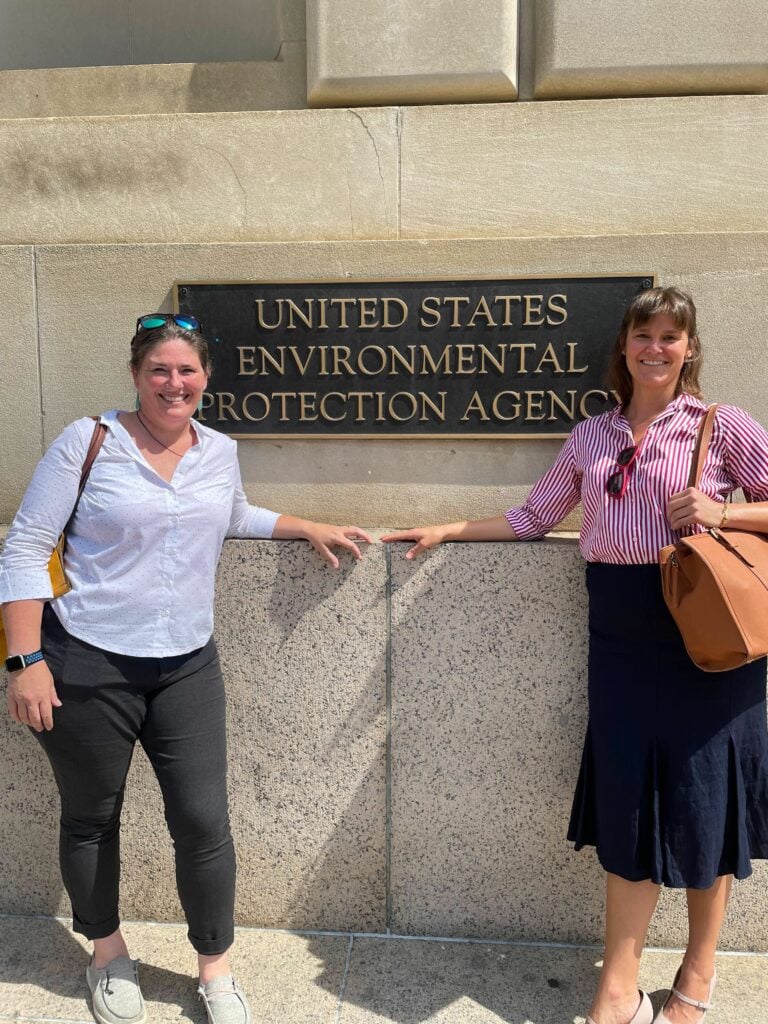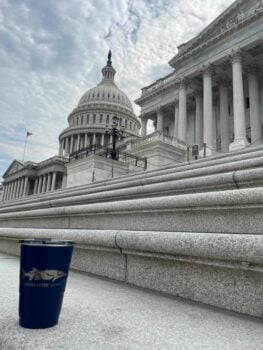Waterkeeper Alliance Takes to the Hill to Advocate for Biogas Awareness
By: Waterkeeper Alliance

Last month, Patience Burke of Waterkeeper Alliance and Tonya Bonitatibus of Savannah Riverkeeper traveled to Washington, D.C. for a week to educate decision makers on the dangers of factory farm biogas and call for an end to policies and funding that incentivize its proliferation. This delegation met with officials all over town to advocate for safer communities and cleaner waterways.
The process of capturing methane emitted by animal waste, aka factory farm biogas, requires the storage of liquid manure in cesspools or the saturation of dry poultry waste at industrial animal agriculture operations. This can have profoundly negative impacts on waterways, communities and the overall environment. Factory farm biogas is a false solution to climate change and should not be considered a source of clean energy. These projects exacerbate environmental injustices because they are predominantly sited in frontline communities already overburdened by industrial animal agriculture. Factory farm biogas compounds the environmental concerns caused by CAFOs by encouraging an increase in livestock head counts, cementing into existence the immensely harmful sprayfield and lagoon model, and creating new air and water pollution concerns. This destructive development only heightens the impact of natural disasters on surrounding communities, and discourages investment in attainable, environmentally superior technologies. 
To raise awareness on this crucial issue, Patience and Tonya met with House congressional offices representing the states of Georgia, Washington, Florida, Ohio, Illinois, as well as legislative staff for the United States House and Senate Committees on Agriculture. On the Senate side, they met with the offices of Senators Warnock (GA), Cantwell (WA), Scott (FL), Brown (OH), and Durbin (IL). The pair also met with officials from EPA’s Office of Environmental Justice and Office of Agriculture and Rural Affairs, USDA’s Natural Resources Conservation Service, and the Treasury Department to advocate for the redirection of resources away from factory farm biogas and towards methane pollution solutions that don’t exacerbate environmental justice issues and industry consolidation.